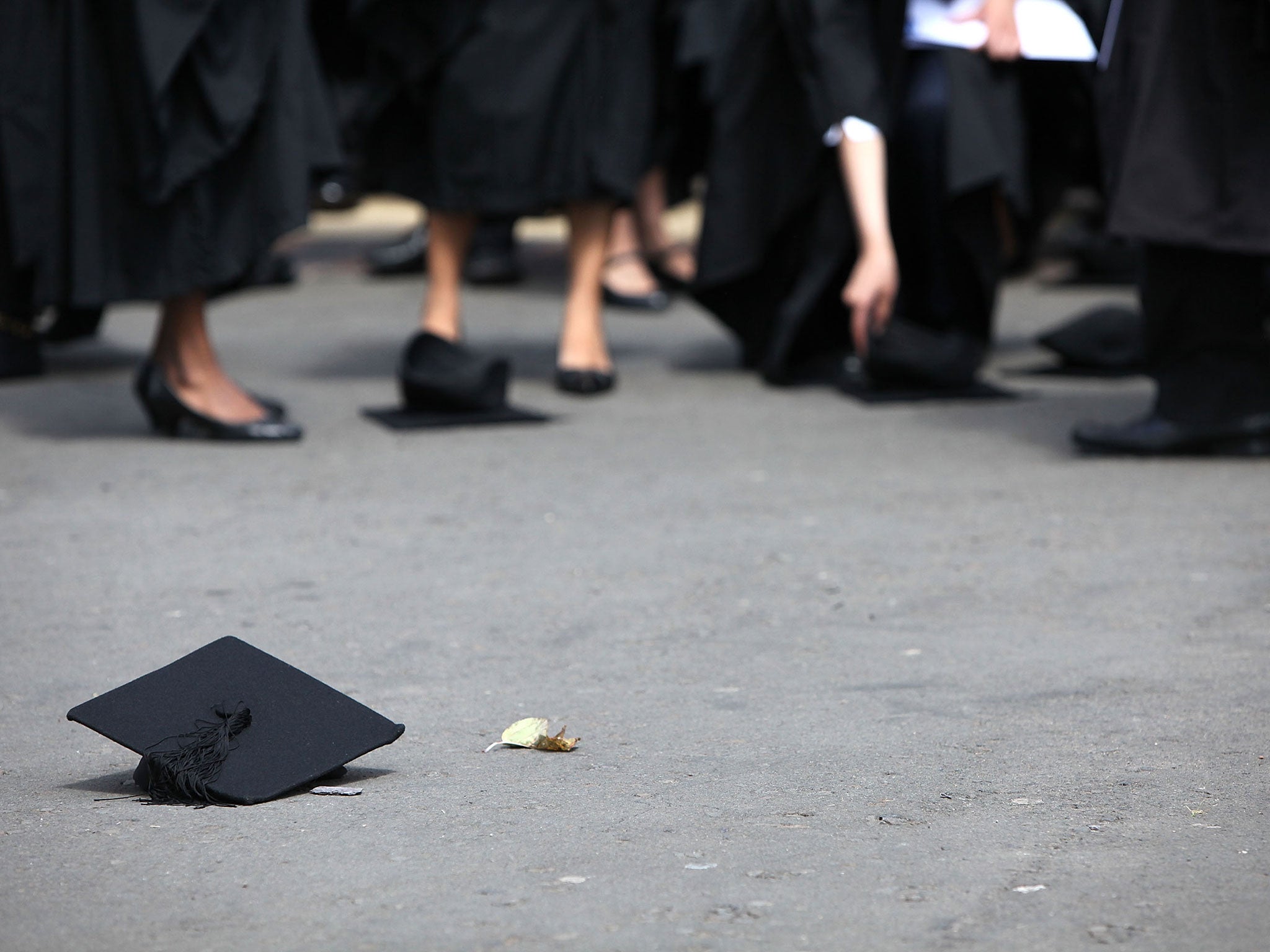Number of disadvantaged students attending university falls for the first time
Despite rising tuition fees, a retrospective student loan hike, and the axe of the maintenance grant, Jo Johnson insists everyone in the UK 'should be allowed to rise as far as their talents will take them'

Your support helps us to tell the story
From reproductive rights to climate change to Big Tech, The Independent is on the ground when the story is developing. Whether it's investigating the financials of Elon Musk's pro-Trump PAC or producing our latest documentary, 'The A Word', which shines a light on the American women fighting for reproductive rights, we know how important it is to parse out the facts from the messaging.
At such a critical moment in US history, we need reporters on the ground. Your donation allows us to keep sending journalists to speak to both sides of the story.
The Independent is trusted by Americans across the entire political spectrum. And unlike many other quality news outlets, we choose not to lock Americans out of our reporting and analysis with paywalls. We believe quality journalism should be available to everyone, paid for by those who can afford it.
Your support makes all the difference.The percentage of young, disadvantaged students attending university has fallen for the first time since current records began, new government data has shown.
Around 22 per cent of 19-year-olds who had been claiming free school meals at the age of 15 went onto university 2013/14, down from 23 per cent the previous year.
Since the 2005/06 academic year, the number of poor students heading into higher education has risen year-on-year from as low as 13 per cent. The percentage of state students not eligible for the meals who went to university also fell in 2013/2014, down from 40 per cent to 39 per cent, but are still above the 33 per cent low in 2005/06.
The Government, however, said the figures show the number of young, poor students is at “a record high.” Universities Minister, Jo Johnson, said: “We are seeing record numbers of disadvantaged young people going to university and benefitting from the real opportunities our world-class universities can offer.”
Despite rising tuition fees, a retrospective student loan hike, and the axe of the maintenance grant, Mr Johnson insisted that everyone in the country “should be allowed to rise as far as their talents will take them, whoever they are and wherever they’re from.” He said: “We will not rest until every young person in our country has the chance to fulfil their promise.”
He also acknowledged there is a gap “still persisting depending on a student’s background,” adding: “There is still more work to do to build a society that works for everyone.”
Pam Tatlow, chief executive of university think-tank MillionPlus, said, despite the “marginal decline” in the number of students in receipt of free school meals progressing to higher education, it welcomed the upward trend in the progression of these and other students to university.
She said: “This progress would not have been possible without the contribution of modern universities to widening participation. The pace of change in the so-called selective universities remains both glacial and small in terms of the number of admissions of students from widening participation backgrounds. These figures confirm that modern universities are key to the achievement of the new Prime Minister’s ambitions to improve social mobility.”
The Government also added its stats have shown over 70 per cent of working graduates were employed in professional jobs six months after graduating, regardless of background.
Additional reporting by Press Association
Join our commenting forum
Join thought-provoking conversations, follow other Independent readers and see their replies
Comments